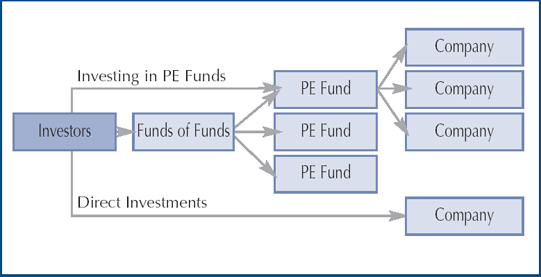Venture Capital Investment:
Seeing the current scenario, India is becoming a viable country for venture capitalists and entrepreneurs alike to start a business and to secure venture capital. Through equity financing, or stock issuing, entrepreneurs don’t have to worry about making monthly debt payments to banks, and instead share part ownership of their company in exchange for capital.
Venture capitalists can invest anywhere from Rs.10,000 up to the billions, expecting a return of up to 30% over a five to ten year period. At the earliest stage of investment, this funding is called seed capital, covering initial marketing, developing and manufacturing expenses.
After several years, even if the business has not yet turned a profit, the company can seek working capital to further expand its line of products, operations, inventories and technologies. When the company or firm has matured, this bridges the gap for company to go to public and to investors. Here, they can restructure stockholder positions and possibly exit their agreement (also known as an “exit strategy”).
What kind of investors are venture capitalists?
Venture Capitalists are professional investors who are specialized in funding and building young, innovative enterprises. Venture Capitalists are long-term investors who take a hands-on approach with all of their investments and actively work with entrepreneurial management teams in order to build great companies.
Where do venture capitalists get their money?
Most venture capital firms raise their "funds" from institutional investors, such as pension funds, insurance companies, endowments, foundations, family offices, and high net worth individuals. The investors who invest in venture capital funds are referred to as "limited partners." Venture Capitalists, who manage the fund, are referred to as "general partners." The general partners have a fiduciary responsibility to their limited partners.
What are the opportunities available for VC in India?
- High Growth in Technology and Knowledge based Industries (KBI)
- KBI growing fast and mostly global, less affected by domestic issues.
- Several emerging centers of innovation – biotech, wireless, IT, semiconductor, pharmaceutical.
- Ability to build market leading companies in India that serves both global and domestic markets.
- India moving beyond supplier of low-cost services to higher-value products.
- Quality of entrepreneurship
How many venture capital firms are there in the India?
There is more then hundred VC from India and abroad have started their business in India from year 2000 onwards, few of the recognized are as below. These are venture capital companies in India.
- Accel Partners India ,Artheon Ventures, Artiman Ventures, August Capital Partners
- BlueRun Ventures
- DFJ India
- Epiphany Ventures
- Helion Venture Partners
- IFCI Venture Capital Funds
- India Innovation Investors
- Inventus (India) Advisory Company
- JAFCO Asia
- Netz Capital
- Nexus India Capital
- Ojas Venture Partners
- Reliance Venture
- SAIF Partners
- Trident Capital
- VentureEast
What types of companies and industries do venture capitalists invest in?
Venture Capitalists invest mostly in young, private companies that have great potential for innovation and growth. Today, the majority of venture capital is invested in high technology companies including software, biotechnology, medical devices, media and entertainment, wireless communications, internet, and networking. In the last five years, the venture industry has also committed itself to investing in the clean technology sectors which include renewable energy, environmental and sustainability technologies and power management. However, Venture Capitalists also invest in innovative companies within more traditional industries such as consumer products, manufacturing, financial services, and healthcare services and business products and services.
How are venture capitalists different from other investors?`
Venture Capitalists are long-term investors who take very active role in their portfolio companies. When a Venture Capitalist makes an investment he/she does not expect a return on that investment for 7-10 years, on average. The initial investment is just the beginning of a long relationship between the Venture Capitalist and entrepreneur. Venture Capitalists provide great value by providing capital and management expertise. Venture Capitalists often are invaluable in building strong management teams, managing rapid growth and facilitating strategic partnerships.
How does angel investing differ from venture capital?
Venture Capital firms are professional investors who dedicate 100% of their time to investing and building innovative companies on behalf of third party investors or their limited partners. The angel investment community is a more informal network of investors who invest in companies for their own interests.
How GIIS financial are help full to access to get part with the VC for investment?
GIIS Financial team have buildup their expertise in venture- capital activities we have created good network and trust with VC firm available in India and abroad, our track record on the performance of VC’s fund management and the selection of ideal project help investor to maximize the gain on his investment and provide a good cushion for protecting any of his bad investment. We help our client to draft the contract with VC firm in his favor.

